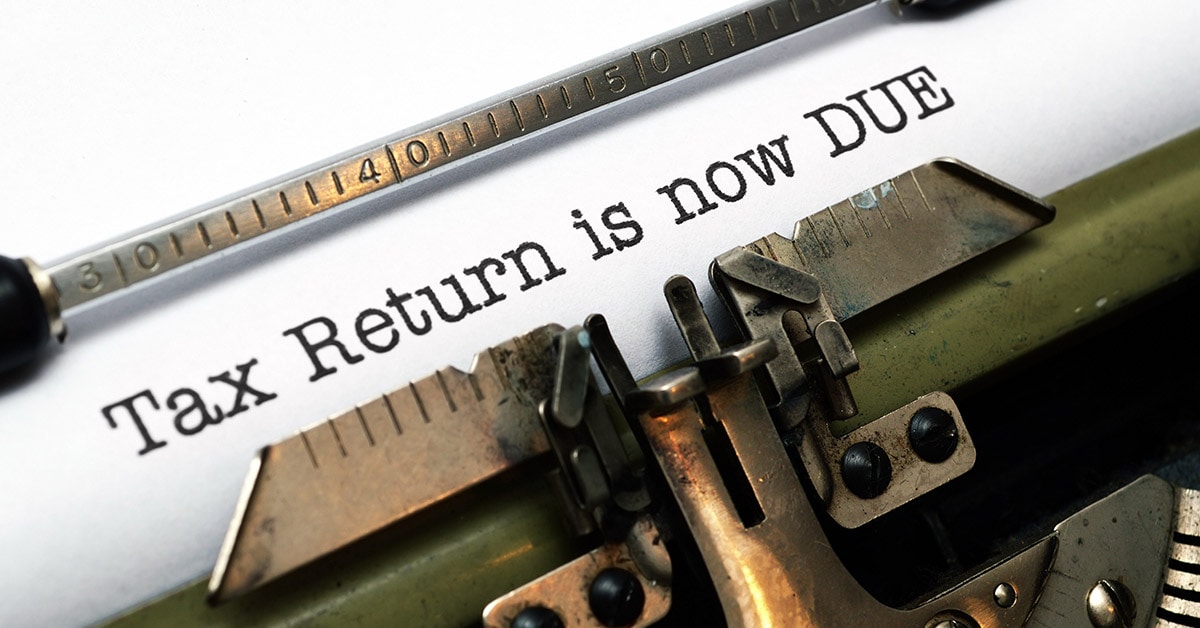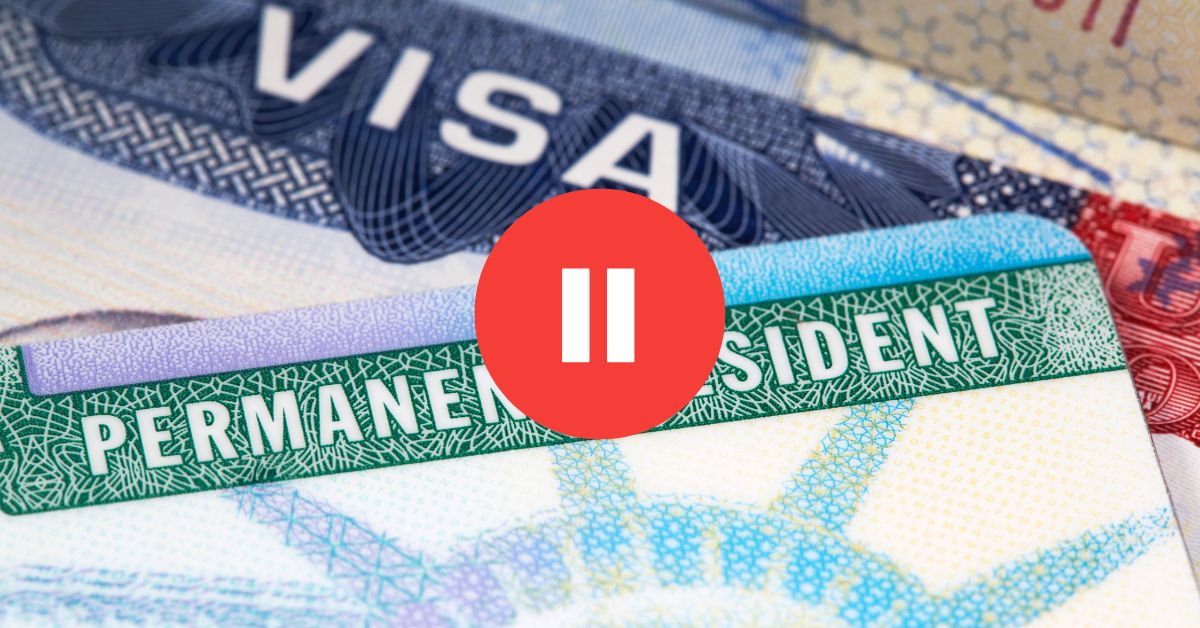There is basically constant confusion online as to the difference between extending your E3 status in the United States, and actually renewing your E3 visa at a US Embassy or Consulate abroad. So what's the major difference between the two and which one should you do? Do they impact each other and can they help each other?
I spend a lot of time on Facebook groups and in chats with people asking each other how to make sure they can stay working in the United States on an E3 visa. Ultimately this comes down to two choices: renewing your E3 visa at a US Embassy or Consulate, or, extending your E3 status in the United States through USCIS (via an I-129).
The two of these are significantly different, and it's important you understand the differences between the two before deciding on a path.
What's the difference between “status” and a visa?
This is at the core of the question and it's good that you're asking, here's immigration lawyer, Doug Lightman from Lightman Immigration talking with me about it.
Here's the breakdown: “A visa allows you to request entry into the United States.” When you enter, you are now in an E3 visa “status”. The visa allows you to enter into a status in the United States.
Now, let's explain the process for each:
How to renew your E3 visa at a US Embassy or Consulate
In this scenario you are ultimately going to end up with a new visa sticker (they call it a stamp, but it's a sticker) in your passport. This will have a date that is up to 2 years in the future and the visa is the pass that allows you to enter the United States from overseas.
A renewal of an E3 visa is virtually identical to getting the inital E3 visa that you already have:
- You get a new certified LCA for the dates of your employment;
- You fill in a DS-160;
- You make an appointment at an embassy or consulate*
- You attend an appointment with all of this in your hand;
- You get approved and they take your passport;
- You collect (or are sent) your passport with a new visa stamp in it.
You'll find the step-by-step process to getting an E3 visa here and there are guides for how to do all of these steps on there.
This is the ideal scenario, but you'll notice I put a little * next to #3, because right now, due to COVID, this step is nearly impossible to achieve without an approved emergency appointment or some extreme luck. More on that below.
How to extend your E3 status while staying in the United States (via USCIS)
This is a slightly more difficult process because USCIS scrutinizes applications a bit more closely than the embassies and consulates do. The concept is the same, but the practice is different.
If you are in legal status in the United States, you can file to extend that using a new LCA and an I-129 (but not in all cases). It's a bunch of paperwork sent off to USCIS and while that's processing you generally have to stay in the country.
When you file internally to extend your status, you also immediately get 240 more days status (your status is defined by your I-94) without even getting the approval back. This is a great stop-gap while we wait for consulates and embassies to re-open!
This paperwork gets returned with an approval or an “RFE” (Request for Evidence) which requires you to send more information about yourself, the job, and the employer (all or some of this).
Once you are approved, you can stay in the country for as long as your status has been extended (generally in-line with your LCA).
Please note: If you have dependents, or if your visa isn't an E3, or a multitude of other conditions, this might not be right for you. Be sure to consult with an immigration attorney before you do this, because I'm not a lawyer and this is not legal advice.
Update February 24, 2021: USCIS has recently announced premium processing for E-3 visas meaning that internally changing status has come down from months to weeks!
So what's the difference between the two?
The fundamental difference between the two is that the visa allows you to remain in the country AND then re-enter if you leave (on holiday, or for any other reason), whereas the status allows you to remain in the United States only.
If you extend your status in the United States, you can keep working and remain legally in the country, but once you leave, you're out, you have to go through the whole application at the embassy or consulate from above if you want to re-enter.
Why would I want to extend my status and not get a new visa (especially during COVID)?
So the question I get asked a lot is why would you need to use this path?
The answer is that throughout COVID we've seen that many places where you would normally get a new visa or renew an old visa are no longer open to applications and you therefore can't actually use their services!
For this reason, the extension of status is a great solution so you can remain working with your current employer and remain legally in the country for longer! Once embassies and consulates open again, you would then go there, get a new visa, re-enter and we're back to square one!
When you file internally to extend your status, you also immediately get 240 more days status (your status is defined by your I-94) without even getting the approval back. This is a great stop-gap while we wait for consulates and embassies to re-open!
Can you change employer with a change of status and remain in the United States?
Yes, but it's tough because right now it's taking around 6-9 months to get the confirmation back and you can't work with the new employer during that wait time. You also can't leave the country and return (if your visa has expired already).
A new visa would allow you to get a new employer and re-enter right away.
Does an extension in the US affect my E3 visa renewal when I do leave the United States and file for a renewal?
When you receive an approval in the US and are holding an I-797A there may come a time where you want to leave the US and get an actual visa.
This USCIS internal extension doesn't really do anything when it comes to filing for a new visa at a US Embassy or Consulate (unfortunately). You should definitely bring it along and have it on-hand as it would be supportive of your application, but in and of itself it doesn't really change anything.
The process is the same: You need to do everything like you would if you had not gotten the internal extension.
Can I re-use an LCA for an E3 visa renewal if I used the same LCA fora USCIS extension?
Yes, but you likely don't want to.
LCAs don't get “used up”, they are simply a document from the Department of Labor that says your employer has the legal right to offer employment to you. You then take that support with you when you get an extension or renewal, but it's not attached to that particular extension/renewal in any way.
So yes, you can file again with the same LCA, but you likely don't want to do that because it will mean that you are missing out on good visa time available to you.
Why do I say this? Well let's say you filed internally, and got a 2 year extension, then stay in the US for 1 year. Half way through your extension. If you leave the US and go to a Consulate or Embassy for a renewal, and use the same LCA, the LCA will show that you are only able to be employed for one more year (in line with your extension) so your visa will reflect that too.
If you instead filed for a new LCA, then you would be able to keep working for up to two years on that approved visa. A much better solution, especially when getting a visa appointment is such a painful process.
How early can I apply for a new E3 visa?
In theory you can apply for a new visa the day after you got your current one. There's no actual limit to how early you can apply because you're going through the whole process from start to finish (so it's the same as getting a new one).
In practice, though, it's easiest to hold out to within 6 months of your last one expiring if you're staying with your current employer, just because you might get asked why you're doing it so early. Officers can add more scrutiny of they don't understand what you're doing, so if you are going early, just be sure to have a reason (e.g. “I was visiting family and this timing worked best!”)
How do I do all this extending and renewing?
Speak to an immigration attorney, here are some I trust!
This stuff isn't all that straight forward and you don't want to run afoul of immigration, especially if your plan is to live and work in the US for a while longer.
Don't mess around.



















You note “If you have dependents,” extending E-3 status from within the US “might not be right for you”. Wouldn’t it just mean submitting an I-539 along with the I-129, or is there something else I’m missing that could make an extension of status less ideal for an E-3 holder with a dependant (on E-3D or E-3S)? Thanks!
Hi Josh,
I’m currently in the US on my first year of my E3 which ends in April 2026. I am flying back to Australia for a month from mid February to mid march and plan on renewing my visa then. When do you recommend my employer files the new LCA? I would like to book in with the Sydney consulate ASAP to guarantee enough time for them to process everything before I return in March.
Thanks so much!
Hi Josh,
I am on my 4th E-3, which expires on September 10th 2025. I just checked my 1-94 status, and found it expires in June 2026.
I’m planning to renew the E-3 at an international consulate, however, I expect to be in France for work at the end of September and am hoping I would be able to schedule a renewal appointment that aligns with work travel plans (so that we don’t have to pay for travel on 2 separate occasions).
I want to make sure I’m legally aloud to continue working in the time between the E-3 Expiry and the visa renewal appointment if I were to schedule it at the end of September/October.
I did ask Chat-GPT for advise here, and it advised I would be permitted, but thought I would check your expert IRL advise!
Thanks in advance 🙂
Hi Josh,
Thanks for setting up this page and helping the community with complex immigration process.
My E3 visa is expiring in Feb 2026 and Current LCA end date is 15th Mar 2026. (had applied and got the visa about a month before LCA start date back then)
So if we start the E3 renewal process in Aug 2025 then we would need a new LCA. What should be the ideal start date on this new LCA.
Should it be Aug 2025 or should it be the next day after current LCA expiry 16th Mar 2026)
If we it is Aug 2025 then will my new 2 year clock starts in Aug 2025 (provided I new visa stamp in Aug 2025)? In this case, I will loose about 5-6 months from current E3 visa.
What are general recommendations on timing for renewing E3 based on not loosing current E3 visa time much and still get new E3 visa on time.
Thanks
Ra
Hi Ra!
So yep, your new visa will be likely issued to correspond with the LCA, so if you make the LCA date August, you can only include an end date up until July/August 2 years later.
Is there a reason you want to start the process in August, or just to get ahead? If that’s the case, you can apply for a start date up to 6 months in advance, so the best bet is to make it a time where you’ll be applying, so that when you apply, it will be as close to 2 years from there (so, optimally that would be February 2026-ish!)
Thank you for your reply! Appreciate it.
Is there a reason you want to start the process in August, or just to get ahead?
=> My exmloyer attorney started the process in Sep now(Instead of aug) with LCA start date of Jan 2026 now so I believe it is all good with 2 year counter from Jan 2026 onwards.
My current E3 expires in Feb 2026 and my extension is filed in Sep 2025 under regular processing,
So can I travel internationally for any emergencies and re-enter before Feb 2026 while USCIS is still processing my E3 extension?
Hi Josh!
My husband has received his E3 renewal, and will travel out of the US for his visa stamp appointment later this month, so hopefully all good there.
As dependants, my son and I have filed for the renewal I-539 (thru lawyer), lodged on 3rd March. In 2023 it took just over a month for ours to be processed. Any idea how long E3D renewals are taking now?? Today the assistant just said 3-6 months -eek! They suggested we could travel to the US embassy also, however, we can’t leave while our son is finishing 12th grade, exams etc.
Any insight would be most appreciated!
Thank you,
Donna
(love your page – it’s been so helpful over the years – thank you for all the info!)
I’m so glad, thanks Donna! So for your son, my understanding is it’s no issue to stay with an extension pending because they should extend status for this time, but for you, you will lose your work authority and won’t be able to work if your status is E-3D. So you should be going to a Consulate if you can.
Hi Josh,
Going through some challenging situations in the job market currently where employers don’t want to ‘sponsor’.
I am eligible for both E3 and H1B. Would you consider that the E3 is ‘sponsorship’? What would be the benefits for the employer of doing an E3 rather than H1B at the moment, other than that it is able to be renewed indefinitely etc. Do you think there is any benefits from an immigration perspective at the current point in time?
Also my E3 is expiring with my current employer in a few months. Would I need an I-129 to get a new E3?
thank you!!
Hey Georgia, yeah it’s really common. When you’re speaking to them directly, you can explain how it’s nothing like “sponsorship” but for the purposes of checking the box on applications, it really is. You don’t need an I-129 for an E3 if you leave the country.
I’ve applied for the renewal of my E3 visa and it has been approved. I now have to fly to Mexico City for the processing interview and have been advised that it can take ‘weeks’ to receive my passport back with the new stamp. Does this mean that I am unable to return to the US for this duration of waiting for the passport to be returned? Is there any way through this that doesn’t see me sitting in another location for weeks?
That’s correct. Unfortunately you do just have to wait for your passport to return! Interesting that you could do it in Mexico that’s news to me (they stopped for a long time)
Hi, I am in the US on an E3 visa. After the first year my visa was expiring in June 2022. My employer applied for a 2 year extension which was approved. The visa extension was due to expire June 2024. So my employer again filed for another 2 year extension in April 2024. We’re still waiting to hear back.
Yesterday I went to the DMV to begin applying for a drivers license, they told me my I-94 had expired in October 2023.
When applying to extend my visa, my employer filed an I-129 and got a new LCA each time. Neither I or my employer knew we needed to file to change the I-94 dates.
My rmployer and I are plannign to go speak CPB offices tomorrow. Do you have any advise on how we should handle this situation? Any insight would be deeply appreciated!
So you should speak to an immigration attorney before speaking to CBP just to make sure but your I-94 wouldn’t be updated because you filed internally. Your new I-94 would be printed on your I-797A that you got back after filing your I-129 (not on the website).
Good gravy that’s a lot of I-!
I can’t thank you enough for the quick response. I have contacted my employer to ask if they received an I-797A when the I-129 petition was approved. Unfortunately, because they filed, nothing was sent to me personally.